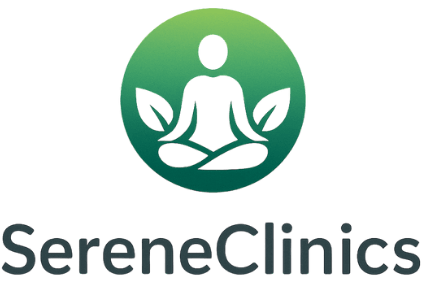Naturopathic Practice: State Regulations, Registration, and Requirements
Navigating the world of naturopathic practice can be difficult, especially when trying to learn about the different state regulations and registration requirements.
No matter if you have been in this field for a long time or are just considering getting started, knowing the ins and outs of legal compliance is crucial.
This article breaks down the essential aspects of state regulations, what you need to register, and the requirements you’ll encounter along the way.
Prepare to improve your practice with the right knowledge!
Key Takeaways:
Contents
- 1 Understanding Naturopathic Medicine
- 2 Role of Licensed Naturopathic Physicians
- 3 Naturopathy Regulations and Statistics
- 4 Public Health and Naturopathic Medicine
- 5 Frequently Asked Questions
- 5.1 What are the laws and regulations regarding naturopathic practice in the United States?
- 5.2 What is the process for becoming a registered naturopathic doctor?
- 5.3 What are the requirements for maintaining a naturopathic license?
- 5.4 Can naturopathic doctors prescribe medication and perform surgery?
- 5.5 Are there any states that do not recognize naturopathic medicine or regulate it?
- 5.6 What is the difference between a naturopathic doctor and a traditional medical doctor?
Understanding Naturopathic Medicine

Naturopathic medicine focuses on natural treatments and the body’s ability to heal itself. Licensed naturopathic doctors use different methods such as acupuncture, homeopathy, and natural antibiotics to treat patients. For those unfamiliar with the field, Healthline offers a comprehensive guide to naturopathic doctors and their practice, detailing various approaches and treatments.
In Texas, the Texas Board oversees the profession by setting licensing rules and ensuring practitioners comply with health and safety laws. Naturopathic medicine also requires ongoing education to keep skills up-to-date and to improve patient care. Those interested in understanding more about the [education and regulations of licensed naturopathic doctors](https://sereneclinics.com/holistic-health/holistic-medicine/naturopathy/naturopathic-doctors-education/) can find valuable insights into how these professionals are prepared to meet modern health challenges.
Naturopathic medicine also requires ongoing education to keep skills up-to-date and to improve patient care.
Role of Licensed Naturopathic Physicians
Licensed naturopathic doctors play an important role in health care, offering personalized treatment plans for each person. They focus on healing and preventing illness with natural remedies, a practice deeply rooted in their rigorous education and training.
These doctors are trained to carefully assess the health needs of patients and provide therapies that follow public health safety standards. As mentioned in our overview of licensed naturopathic doctors’ education, their approach ensures that they incorporate the best of natural and conventional medical knowledge.
Naturopathy Regulations and Statistics
Naturopathy Regulations and Statistics
Alternative medicine practices are gaining traction worldwide, as individuals increasingly seek holistic and complementary treatments. According to research from the National Cancer Institute, complementary and alternative medicine (CAM) plays a significant role in enhancing conventional treatment strategies. This respected source highlights the growing integration of CAM in healthcare settings, which is pivotal for those exploring diverse therapeutic options, including those offered by licensed naturopathic doctors.
Naturopathic Practice Statistics: Growth of Naturopathic Practitioners
Naturopathic Practice Statistics: Usage of Naturopathy
Naturopathic Practice Statistics: Licensing

Naturopathy Regulations and Statistics Give a clear summary of how naturopathic practices have grown and become more accepted in North America, showing how views on alternative medicine have shifted over the past few decades. In Naturopathic Practice Statistics, the data highlights the significant growth in naturopathic practitioners, increased usage among U.S. adults, and the extent of licensing across jurisdictions.
The growth of naturopathic practitioners is evident in the leap from 2,000 licensed practitioners in North America in 2000 to 5,000 in 2016. This increase shows more people want natural health methods and are more curious about learning and working in alternative medicine. Notably, Canada contributed 2,000 licensed practitioners in 2016, indicating a substantial presence and acceptance within the country.
- Usage of Naturopathy: The number of U.S. adults utilizing naturopathy has grown from 0.2% in 2002 to 1.3% in 2022. This increase suggests a growing trust and interest in natural health solutions, likely driven by a broader wellness trend and a desire for preventive health measures.
Licensing is an important element in the official acceptance and regulation of naturopathy. In the U.S., 26 jurisdictions have granted licensing, while 6 Canadian provinces offer similar legal recognition. Licensing supports consistent education and practice, strengthening the profession’s reputation and public confidence.
The data within Naturopathy Regulations and Statistics Highlights the growing acceptance and use of naturopathy. The rise in licensed practitioners, expanding usage, and widespread licensing indicate growing mainstream acceptance and integration into conventional health care systems. These trends show that naturopathy could play a bigger role in supporting overall health and wellness.
1. Education and Training
Education and training for licensed naturopathic doctors usually involve a detailed program at accredited naturopathic medical schools, encompassing both classroom study and practical clinical experience, to offer a full education in natural health care techniques. To gain more insight into the institutions offering these programs, Massachusetts provides a list of board-approved naturopathic medical colleges.
These courses typically include subjects like pharmacology, nutrition, herbal medicine, and physical medicine. They train upcoming workers with different skills to address personal health needs.
Practical clinical training is important because it allows students to apply what they have learned in real-life situations with help from experienced professionals.
After finishing their education, those looking to become naturopathic doctors must go through state licensing steps. These steps usually involve passing both national and state tests to show their skills.
Healthcare providers need to keep learning throughout their careers to keep up with new developments and meet changing licensing rules.
2. Treatment Modalities
Naturopathic physicians employ a variety of treatment modalities, including natural antibiotics, acupuncture using acupuncture needles, homeopathic preparations, and even minor surgical procedures, all aimed at supporting the body’s natural healing processes for therapeutic purposes.
These practitioners combine old healing techniques with current scientific knowledge to support overall patient care.
For example, changing your diet can improve health, while plant-based medicines can help with different health issues.
Treatments like hydrotherapy and lifestyle advice motivate patients to take an active role in managing their health.
By using various approaches, naturopathic doctors handle current health issues and help their patients keep healthy over time with natural treatments and strategies to prevent illness.
This combined approach is important for promoting the best health and energy.
3. Regulatory Bodies
Regulatory organizations, like the Texas Board, supervise naturopathic medicine to make sure licensed naturopathic doctors follow public health regulations and meet set licensing standards for safe and effective practice.
These organizations play an important role in maintaining honesty in the profession by establishing guidelines for education, ethics, and clinical work.
By strictly following state and national rules, they protect public health and build trust in patients looking for complete care.
These regulations define what naturopathic professionals can do and make sure they have the required knowledge to provide proper and evidence-based treatments.
These rules impact individual healthcare workers and promote improved care, resulting in a more accountable healthcare industry.
Public Health and Naturopathic Medicine
Naturopathic medicine plays an important role in public health by dealing with health care needs through prevention and treatments that focus on safety, teaching patients, and programs for community well-being. See also: Licensed Naturopathic Doctors: Definition, Education, and Regulations, which provides insight into the educational background and regulatory framework that support these practices.
1. Preventive Care

Preventive care is a cornerstone of naturopathic medicine, where licensed naturopathic physicians focus on educating patients about healthy lifestyle choices and therapeutic purposes of natural remedies to promote overall wellness.
By focusing on education, these professionals help people manage their health, encouraging an active approach to staying healthy. This treatment philosophy aligns seamlessly with public health objectives, as it stresses the significance of disease prevention and the cultivation of healthy habits.
Naturopathic care involves methods like nutritional advice, herbal treatments, and ways to handle stress. It deals with current health problems and helps stop new ones from appearing.
These methods promote natural treatments that help the body’s own healing processes, improving public health and easing pressure on traditional healthcare systems.
2. Community Wellness Initiatives
Community wellness initiatives led by naturopathic physicians often focus on improving public health by organizing workshops, seminars, and health screenings that emphasize the importance of preventive care and public health safety.
These programs help increase community awareness about overall health habits and give individuals the tools to manage their own health.
Through activities like nutritional counseling, herbal medicine, and mindfulness workshops, participants can learn effective strategies to manage stress and make healthier choices.
These projects plan to create a welcoming place where community members can connect with health care providers, developing trust and collaborating.
By encouraging active health steps, naturopathic doctors help lower the number of chronic diseases and support healthier living, which benefits public health.
3. Integration with Conventional Medicine
Combining naturopathic medicine with regular healthcare systems helps create a better approach to patient claims. Naturopathic doctors work with other healthcare providers to create complete treatment plans that follow public health laws.
The team uses conventional medical treatments together with effective naturopathic methods to improve both physical and emotional health problems.
This approach encourages group decision-making, where all experts bring their knowledge to develop personalized treatment plans for every individual.
Public health laws are important as they direct the work with rules that focus on keeping patients safe and providing coordinated care.
As naturopathic medicine becomes more popular, it helps create health policies that appreciate different medical approaches in promoting well-being.
Frequently Asked Questions
What are the laws and regulations regarding naturopathic practice in the United States?
Naturopathic practice is regulated on a state-by-state basis, with some states having no regulations at all. Currently, 22 states, the District of Columbia, and the US territories of Puerto Rico and the US Virgin Islands have laws regulating the practice of naturopathic medicine.
What is the process for becoming a registered naturopathic doctor?

The process for becoming a registered naturopathic doctor varies by state, but generally includes completing a naturopathic medical program accredited by the Council on Naturopathic Medical Education (CNME) and passing the Naturopathic Physicians Licensing Examination (NPLEX).
What are the requirements for maintaining a naturopathic license?
The requirements for maintaining a naturopathic license also vary by state, but typically include continuing education courses and periodic license renewals. Some states may also require naturopathic doctors to pass a state-specific examination or complete a certain number of clinical hours.
Can naturopathic doctors prescribe medication and perform surgery?
This also varies by state, but in general, naturopathic doctors are not licensed to prescribe medication or perform surgery. However, they might be allowed to prescribe specific medications in states where they have been given the power to do so.
Are there any states that do not recognize naturopathic medicine or regulate it?
Yes, some states do not regulate naturopathic medicine, meaning there is no official status or license for naturopathic doctors in those states. Patients should look into state rules before visiting a naturopathic doctor.
What is the difference between a naturopathic doctor and a traditional medical doctor?
Naturopathic doctors focus on treating the whole person and addressing the root cause of health issues, rather than simply treating symptoms. They also use natural and non-invasive treatments, such as herbal medicine and nutrition, in addition to conventional medicine. Traditional medical doctors typically focus on diagnosing and treating specific illnesses or symptoms with medication or surgery.

Sheetal Sharda has a background in CS. She got an interest in Holistic living back in 2018, and has since started exploring more into Naturapathy, Holistic Living, Yoga, and more. She got inspired to start SereneClinics to help people find reliable centers across the world.






